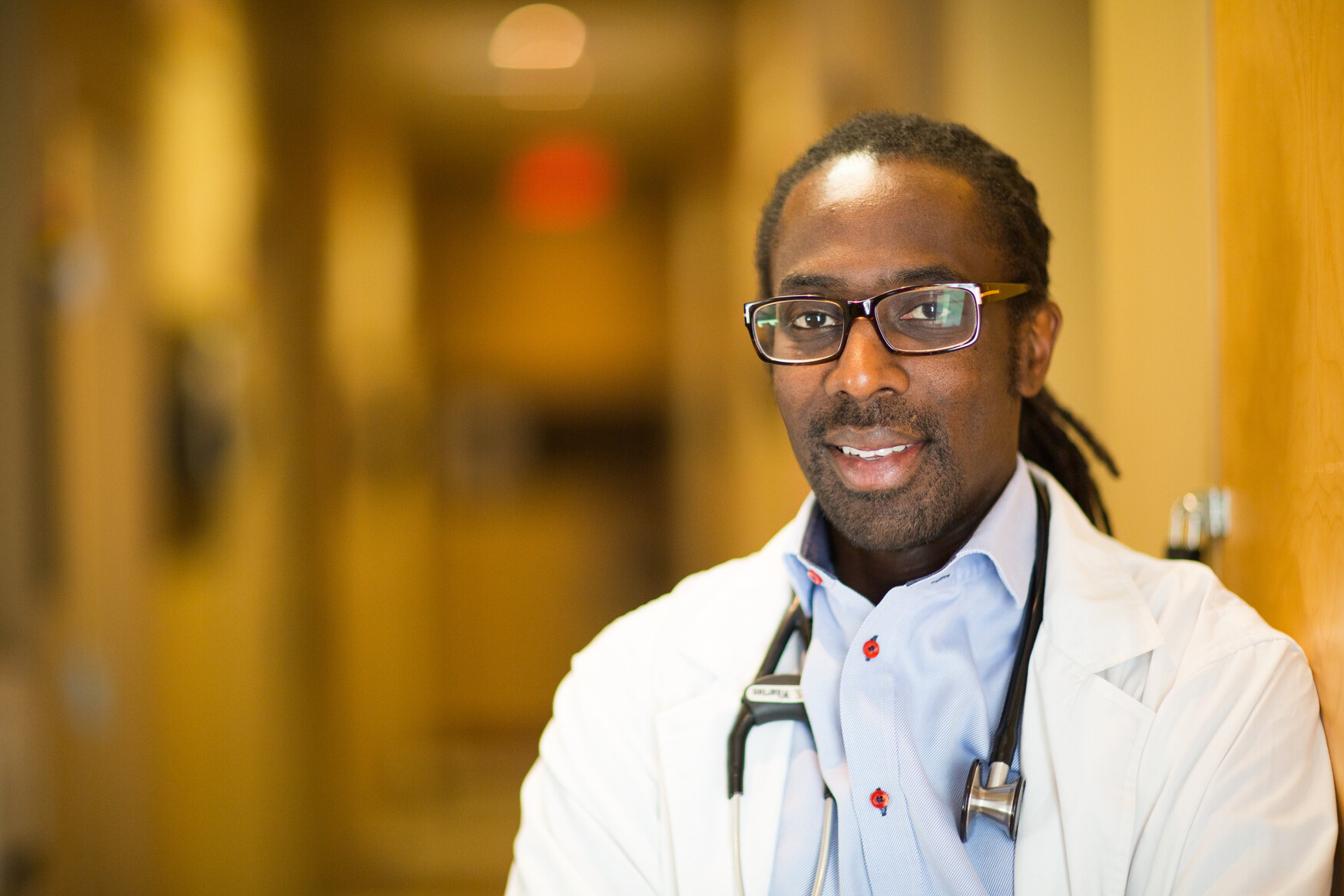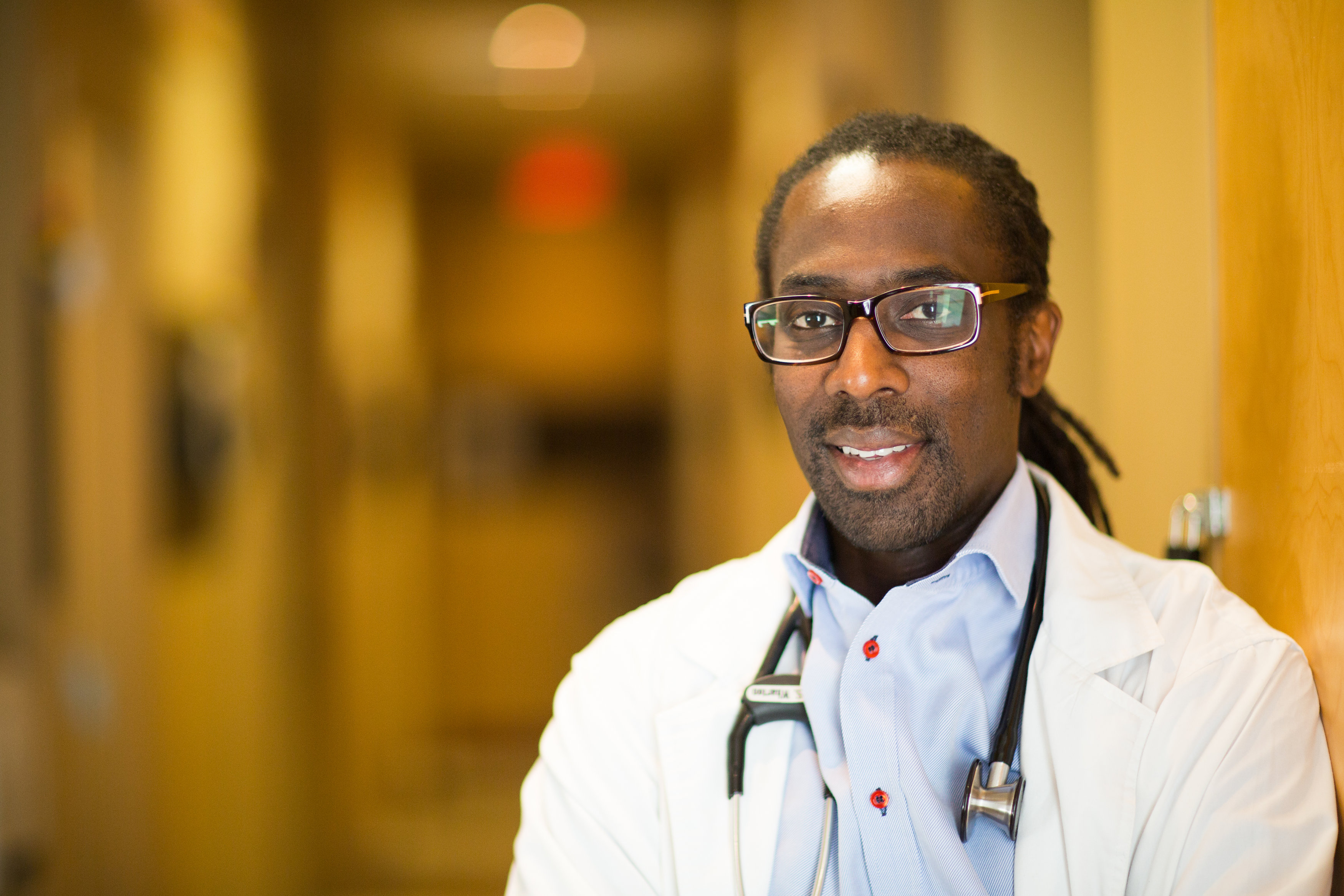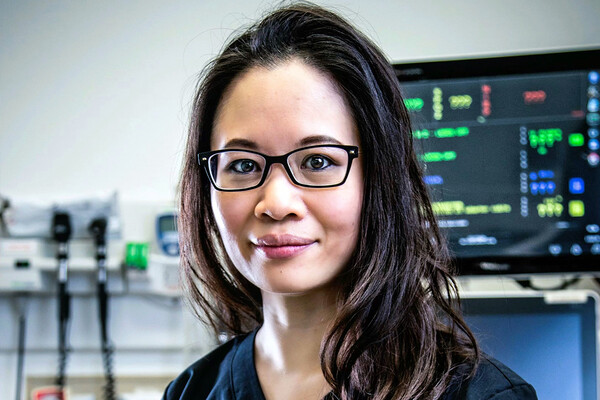Breadcrumbs
- Home
- MD/PhD Program
- News
- UofTMed Alum: Advocacy, Stigma and 20 Years of the Black Medical Students Association
UofTMed Alum: Advocacy, Stigma and 20 Years of the Black Medical Students Association

Dr. Sean Wharton
 When I started medical school in 1997, I was one of three black students in my class of 270. We made up just over one per cent of the medical school class, and when you compared that to the percentage of Black people in Toronto (7.5 per cent), it was very disproportionate. And U of T was higher than most other medical schools.
When I started medical school in 1997, I was one of three black students in my class of 270. We made up just over one per cent of the medical school class, and when you compared that to the percentage of Black people in Toronto (7.5 per cent), it was very disproportionate. And U of T was higher than most other medical schools.
I felt we should do something. We recognized we were a marginalized group, and we wanted to advocate for ourselves and others coming up behind us. So we started U of T’s Black Medical Students Association in 1999 — 20 years ago now.
We focused on helping undergrad students who were trying to get into medical school. We helped them ensure their GPAs were competitive, and that they were able to prepare for their MCATs and interviews.
Many of those students are now doctors and leaders in the community.
This year, thanks to our efforts, mentorship and initiatives such as U of T’s Black Student Application Program there are at least 15 Black medical students in U of T’s first year class. This is a big difference from when we started.
Now, in my work as medical director of a community-based internal medicine weight management clinic, I continue to advocate for marginalized groups. People living with obesity face enormous stigma, and I find it can be similar to the way I felt growing up a Black male in Canada.
I may have gravitated to this area of medicine as I can empathize with the stigma and biases that people living with obesity encounter every day. I hope that I offer a treatment program that helps improve their medical conditions as well as their own self worth.
Obesity management is a fascinating area, involving science, biology, neuroscience and also has connections to other fields such as socioeconomics.
It’s also tremendously rewarding to connect my advocacy for Black students with my internal medicine practice. Oftentimes students from the Black Medical Students Association come to my clinic and spend a day shadowing me. We talk about their next career steps and potential areas of focus. I know from experience that having mentors and role models, and a sense of community, can make a significant difference to students and fellow colleagues.
When I was in medical school it was inspiring that Dr. Miriam Rossi was the associate dean — having another Black individual who was concerned about the marginalized community in a leadership position meant a lot to me. We bonded very quickly, along with the then senior student-affairs officer Diana Alli, who is South Asian and also felt very strongly about all communities. I felt that I lucked into a community that was ready to really help out.
And before medical school, while I was doing my doctorate, I connected with the Association for the Advancement of Blacks in the Health Sciences, an organization started at U of T. Being part of that group opened my eyes to the possibilities for helping marginalized groups.
I’m also very grateful for the financial support I received as a student, particularly in my third and fourth years. It was like $1,000 at a time, so in the range of $5,000 total, which seems to many people like a drop in the bucket. But it was huge to me and so wonderful. U of T stepped in to try to help students when there were financial pressures.
Now I tell students the fact that they made it into medical school means they're going to continue to succeed, so to try not to second guess whether they have what it takes to be here. I also tell them to remember that they have help along the way. That they can reach out to me and many other mentors that care about them and the community. They should know that they are not alone on this journey.
Dr. Sean Wharton, BScPhm ’92, PharmD ’97, MD ’01, is the founder of U of T’s Black Medical Students Association, and medical director of the Wharton Medical Clinic, a community-based internal medicine weight management clinic.
News


